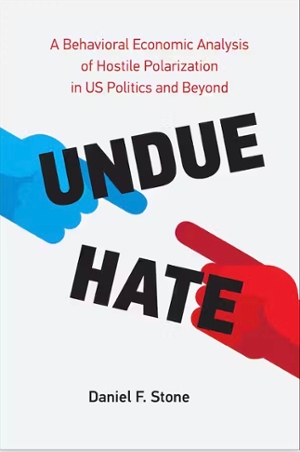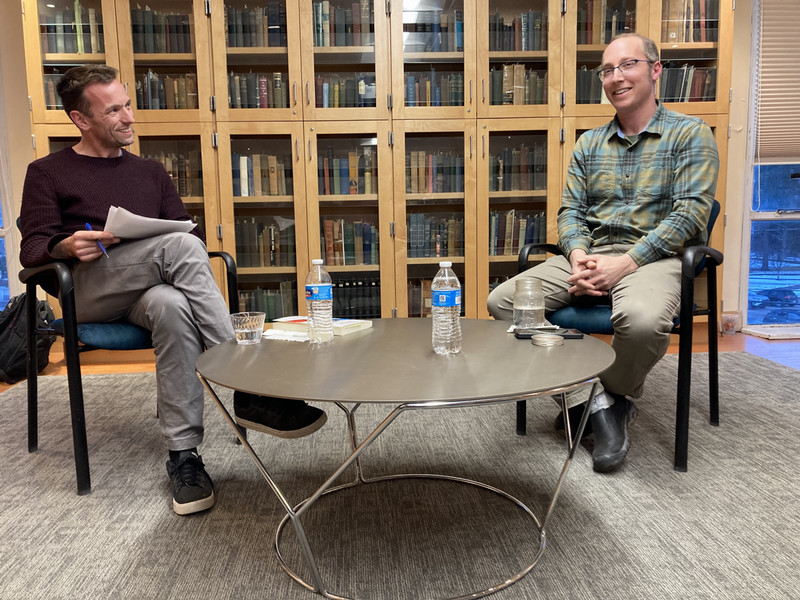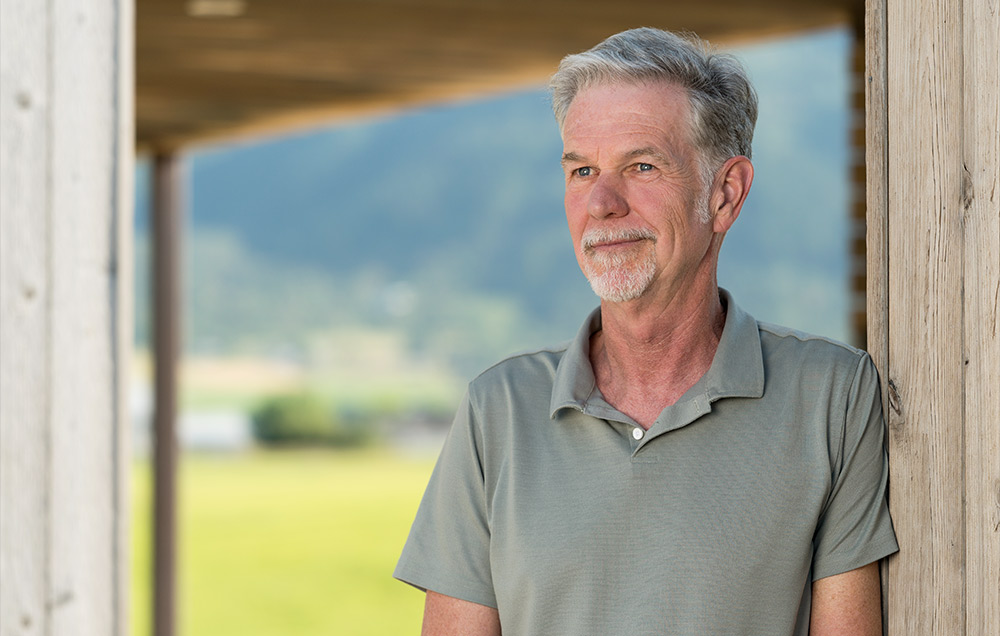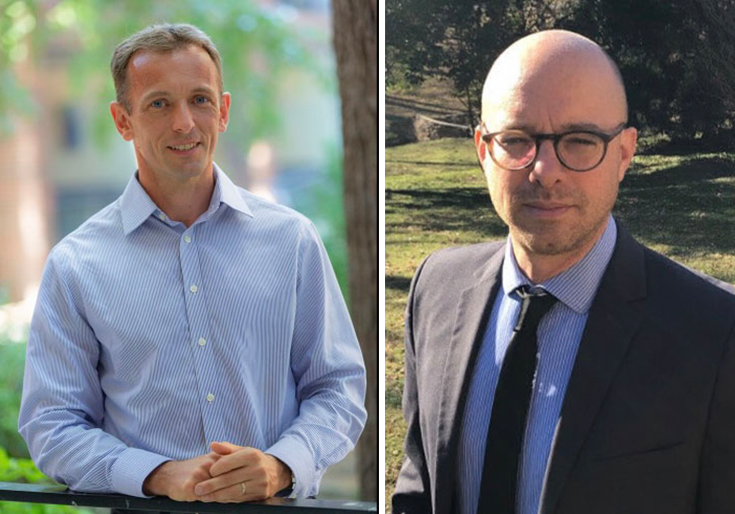Undue Hate: Why Do We Dislike Those We Disagree with More than We Should?
By Tom PorterWith the US more politically polarized than ever, behavioral economist Dan Stone asks why this is the case and what can be done.

In his recently published work, Undue Hate: A Behavioral Economic Analysis of Hostile Polarization in US Politics and Beyond (MIT Press, 2023), the associate professor of economics explores the growth in what he calls “affective polarization,” a term used to describe the emotional hostility that underpins much of today’s political rhetoric.
Employing his tools as a behavioral economist, Stone explains why we often develop objectively false, and overly negative, beliefs about the other side—causing us to dislike them more than we should. He employs simple mathematical concepts and models to illustrate how we are able to misjudge those we disagree with, in both a political and nonpolitical context.
In a book launch event on campus earlier this semester, where he sat down with fellow economist Martin Abel, Stone said the affective polarization so common today goes back much further than most people think, to the 1980s. An example of a watershed moment, he explained, was the nomination of conservative judge Robert Bork to the Supreme Court by US President Ronald Reagan, which was blocked by Democrats and was perceived by both parties as a politically motivated incident causing repercussions for decades.
Another factor is the media industry. Going into the 1990s, said Stone, we saw the emergence of blatantly partisan media in the form of talk radio (“which is mostly right-leaning”) and cable networks like Fox News and MSNBC. “Then in the 2000s came internet media and now social media, so for a variety of reasons the US has sort of become steadily more affectively polarized.”

This growth in affective polarization, said Stone, often means people find it increasingly harder to disagree with others without disliking them as well. “In general, whenever people disagree about anything, whether in politics or not, we have a bias toward disliking the other person too much as a result of that disagreement.”
Human biases come in a number of different forms, said Stone. “Many people are familiar with confirmation bias, where we tend to interpret new information to confirm what we already believe.” Similar to that, he explained, is something called motivated reasoning (a.k.a wishful thinking), which is focusing on, and being more trusting of, information that we would like to believe is true.
“A term most are not familiar with, though,” continued Stone, “is overprecision bias, where people think they know more than they really do.” This is a concept Stone has been exploring in the class he’s been teaching this semester (ECON 3561, Behavioral Economics and Socially Responsible Capitalism). “We do a sort of trivia quiz where students get to rate their confidence levels and knowledge on various topics. They're all true/false or yes/no answers, so if you're clueless, you're supposed to say ‘fifty percent’ as your answer,” he said. On average, explained Stone, the students’ answers displayed an overconfidence, failing to answer as many questions correctly as they predicted. “One student, for example, said he was one hundred percent confident of answering a question that he actually got wrong.”
Another type of bias Stone mentioned is false consensus bias. “This is thinking that we have more in common with others than we really do. You wouldn't think that that would cause undue hate, but it does—all the time.” He gives the example of a social safety net: the idea, typically favored by Democrats, that higher taxes are a good thing to provide for a caring society. Even Republicans must be aware of this, supporters of the concept who are guilty of false consensus bias might reason. So, it follows that, for them to oppose it, there must be a hidden motive, “and hidden motives are usually bad ones,” said Stone.
Other evidence that hostility is driven by bias and false beliefs include that we overestimate the other side’s hostility and perhaps cause them to overestimate the readiness of their opponent to resort to political violence.
There’s no quick fix to the polarized situation that society now finds itself in, observed Stone, but that doesn’t mean there’s no hope. “I do have faith in the ability of people to come to appreciate truth over a long enough period of time. The arc of history is long, but I think there could be ways to make it work.”
There are glimmers of light in the political world, said Stone, such as the Republican governor of Utah, Spencer Cox, who has launched an initiative to combat polarization, promoting respectful dialogue. As well as political leaders, big figures from the tech world, like Mark Zuckerberg, also have a part to play, said Stone. “They need to commit to changing social media algorithms, for example, in order to incentivize posts that are actually informative and depolarizing.”
As for the average person looking to do their bit to counter polarization, Stone has this advice:
“The world is complicated, so we need rules of thumb to figure how to act on a day-to-day basis. So, next time you hate something, I'm not saying don't hate it at all, but try to cut your hate in half.” The ultimate aim, he said, is to “make intellectual humility cool” and make polarizing, extremist content online “uncool,” and this will not happen overnight.
(Media spotlight: Read a 2023 interview with Stone in salon.com)



